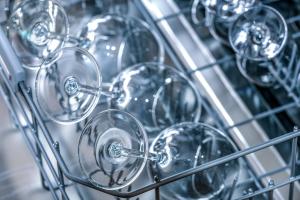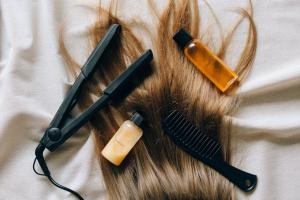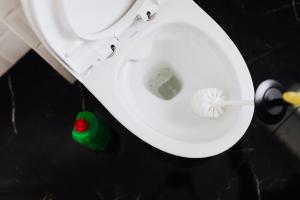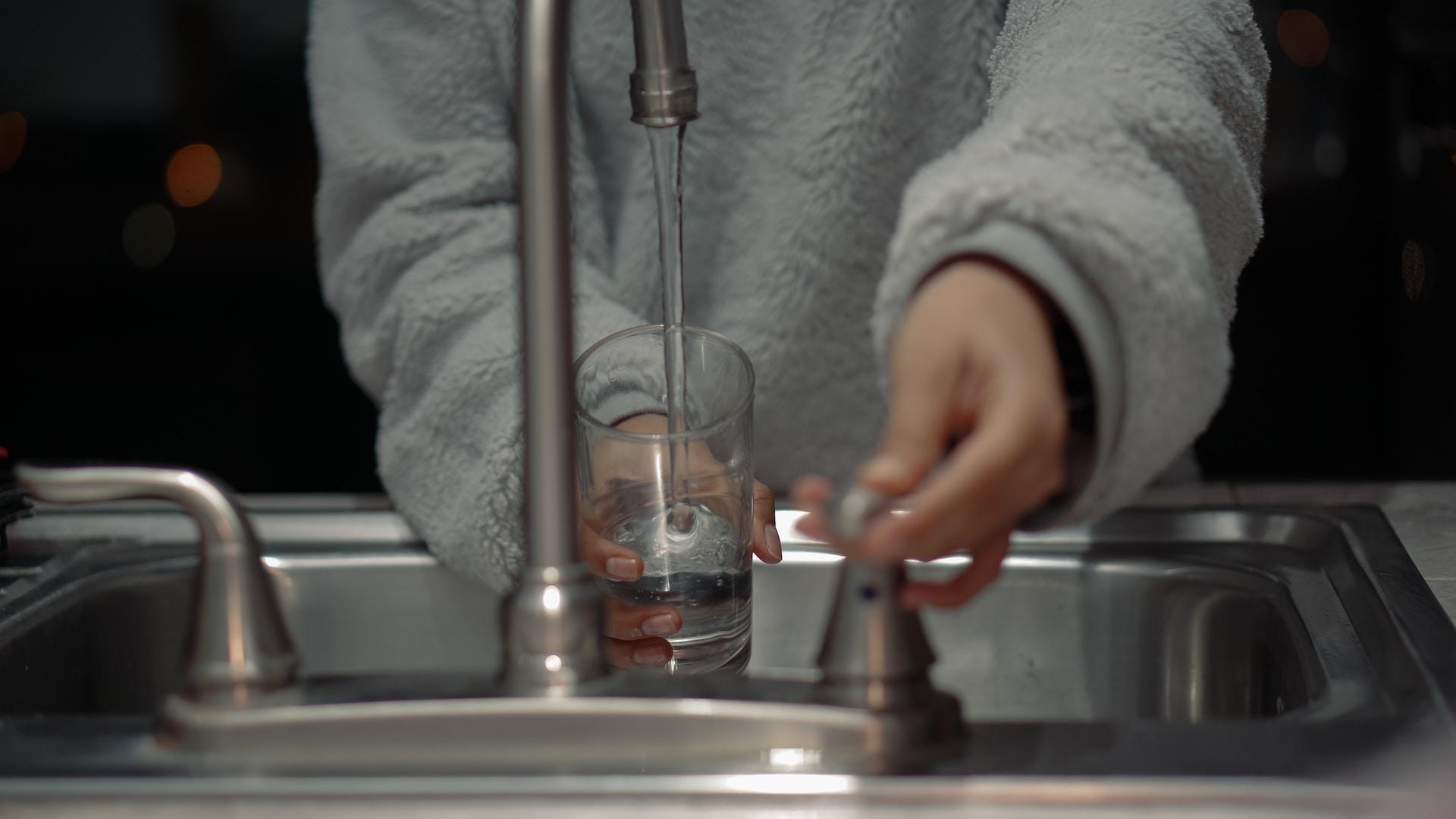
Many places in the UK are hard water areas - you might be living in a hard water area without realising it! If you get a build-up of limescale on your appliances, have issues with dry hair and skin, or struggle to get a good lather with cleaning products, it could be that you live in a hard water area. Take a look at our water hardness map to check the type of water where you live.
What is Hard Water?
Hard water has a higher natural mineral content, with higher levels of magnesium or calcium, that typically occurs where there is limestone or chalk in the ground where the water filters through before water companies extract it. Around half of the UK lives in a hard water area.
While hard water is perfectly safe to drink, the higher mineral level can cause a few issues in your home. Firstly, hard water is what causes limescale, which can cause damage to your household appliances and pipes. Hard water can also affect hair and skin, causing dryness and eczema. It can also increase your household bills as it takes more energy to heat hard water, and more cleaning and toiletry products are required to get good results with hard water.
Discover more about how hard water affects your home and how a water softener could help.
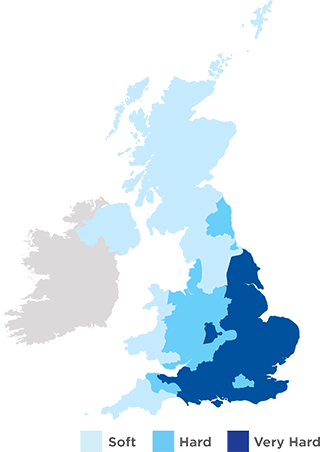

Do I Live In A Hard Water Area?
Around half of the UK population lives in a hard water area. Water is hardest in the southeast of England, while Scotland has the softest water in the UK. The best way to check if you live in a hard water area is to enter your postcode into our Hard Water Map.
If you live in a moderate area of water hardness, you may be unsure whether it is an issue or not. You may want to look out for these signs of water hardness, which could be improved with a water softener:
- Limescale - you may notice a build-up of limescale on your taps, in your kettle or other appliances.
- Dry hair or skin.
- Needing to replace appliances often.
- Needing lots of shampoo to create a lather or needing more detergent to wash clothes.
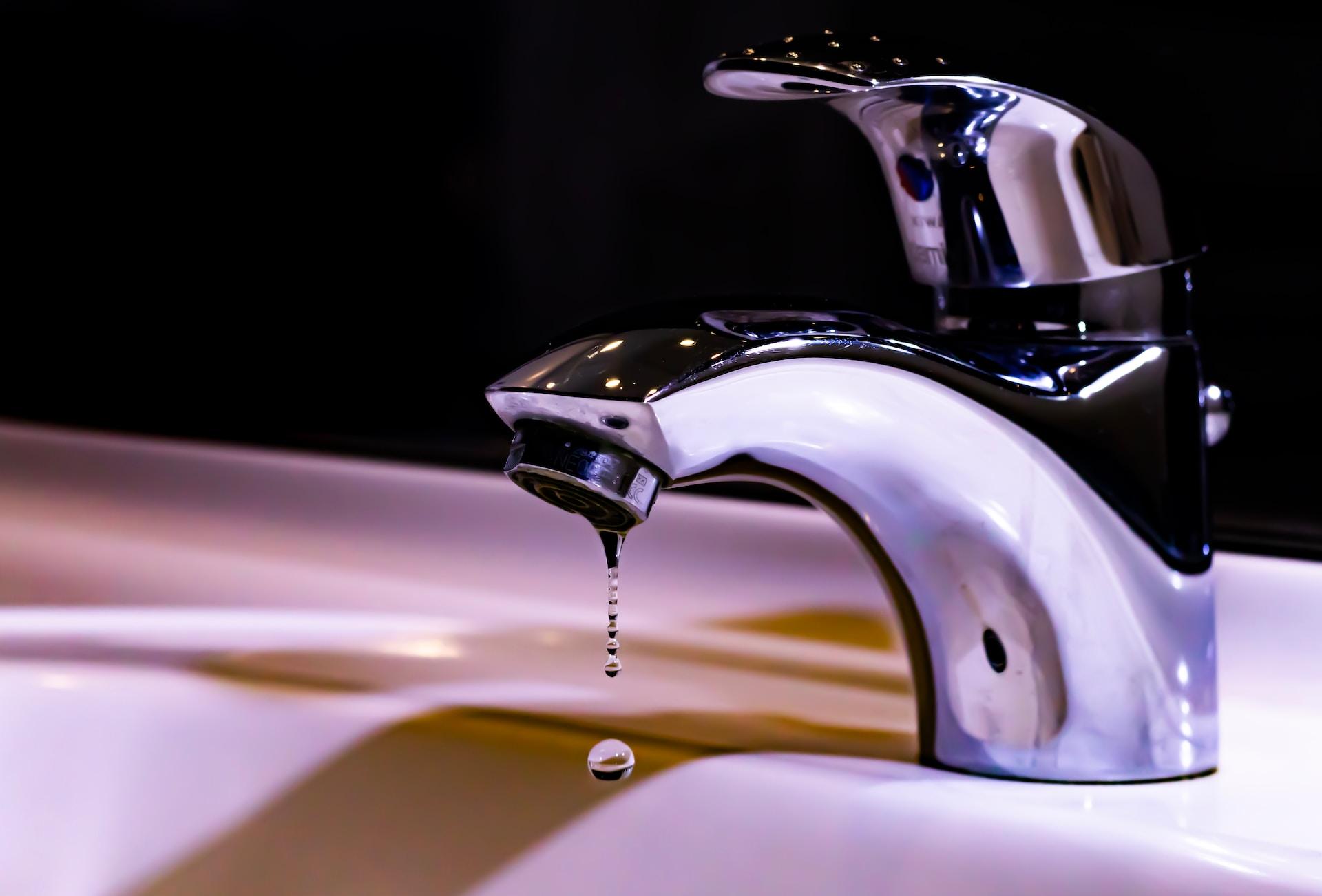

I Live In A Hard Water Area; What Should I Do?
Once you’ve found out that you live in a hard water area, you may want to take steps to reduce the impact hard water has on your home.
Water Softener
The best way to reduce the impact of hard water in your home is to install a water softener. Water softeners work to remove the magnesium and calcium from your water supply through ion exchange.
Our Kinetico Premier water softener passess hard water through twin tanks filled with food-grade resin beads, which attract the minerals in the water. Ion exchange takes place, removing the magnesium and calcium, and releasing sodium ions into the water, leaving it softer and stopping limescale.
Water Filter
Water filters can also be a big help in hard water areas, as they can work to remove some of the excess minerals in your tap water. A water filter can reduce the amount of limescale in our drinking water, helping to stop build-up in kettles and flakes in your tea. Our range of Kinetico water filters can provide filtered drinking water on tap.
For the best results, you can install both a water softener and water filter in your home.
Cleaning Limescale
If you live in a hard water area and don’t use a water softener, you will likely need to clean limescale from your appliances regularly. By cleaning limescale from your kettle, you can help to extend its life and reduce the amount of energy needed to boil the water. You will also likely need to clean limescale from your taps, showerhead, washing machine and other appliances that come into contact with water.
Check out our guide on removing limescale from kettles, taps, bathrooms and washing machines.
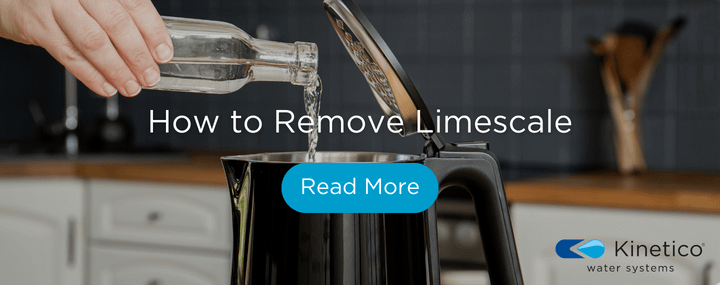

If you’d like to find out more about how water softeners and water filters can help your home, get in touch with us to speak with a water expert.






